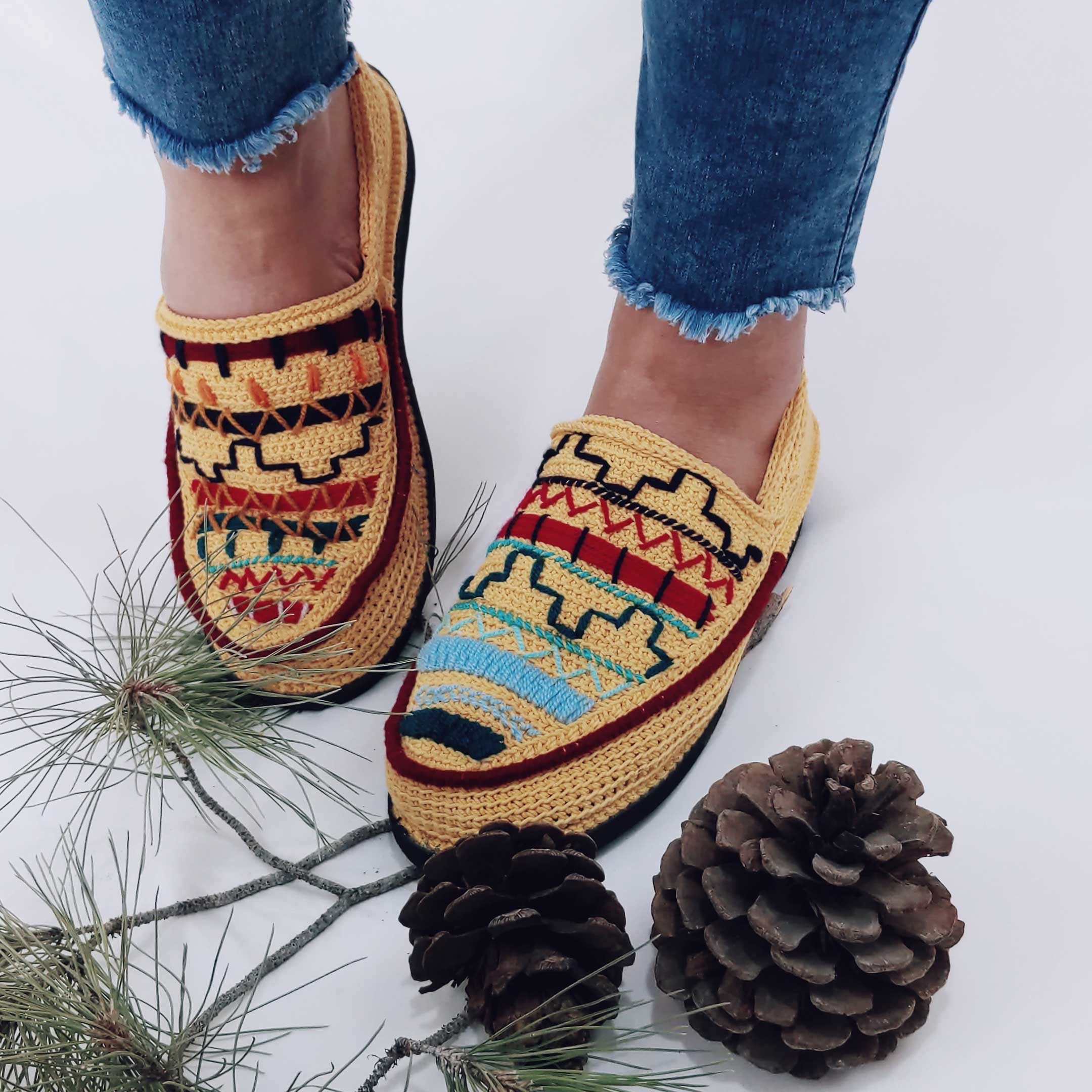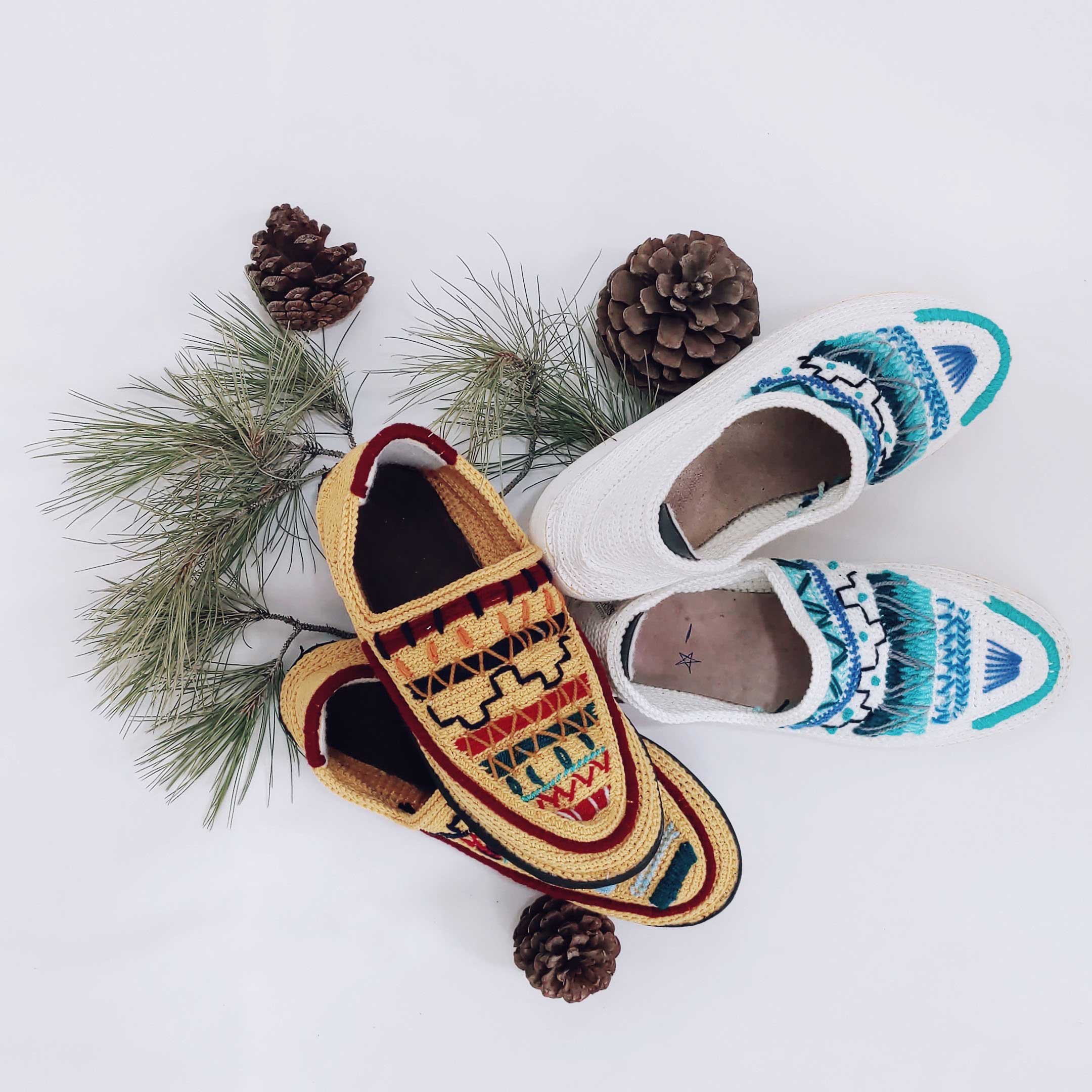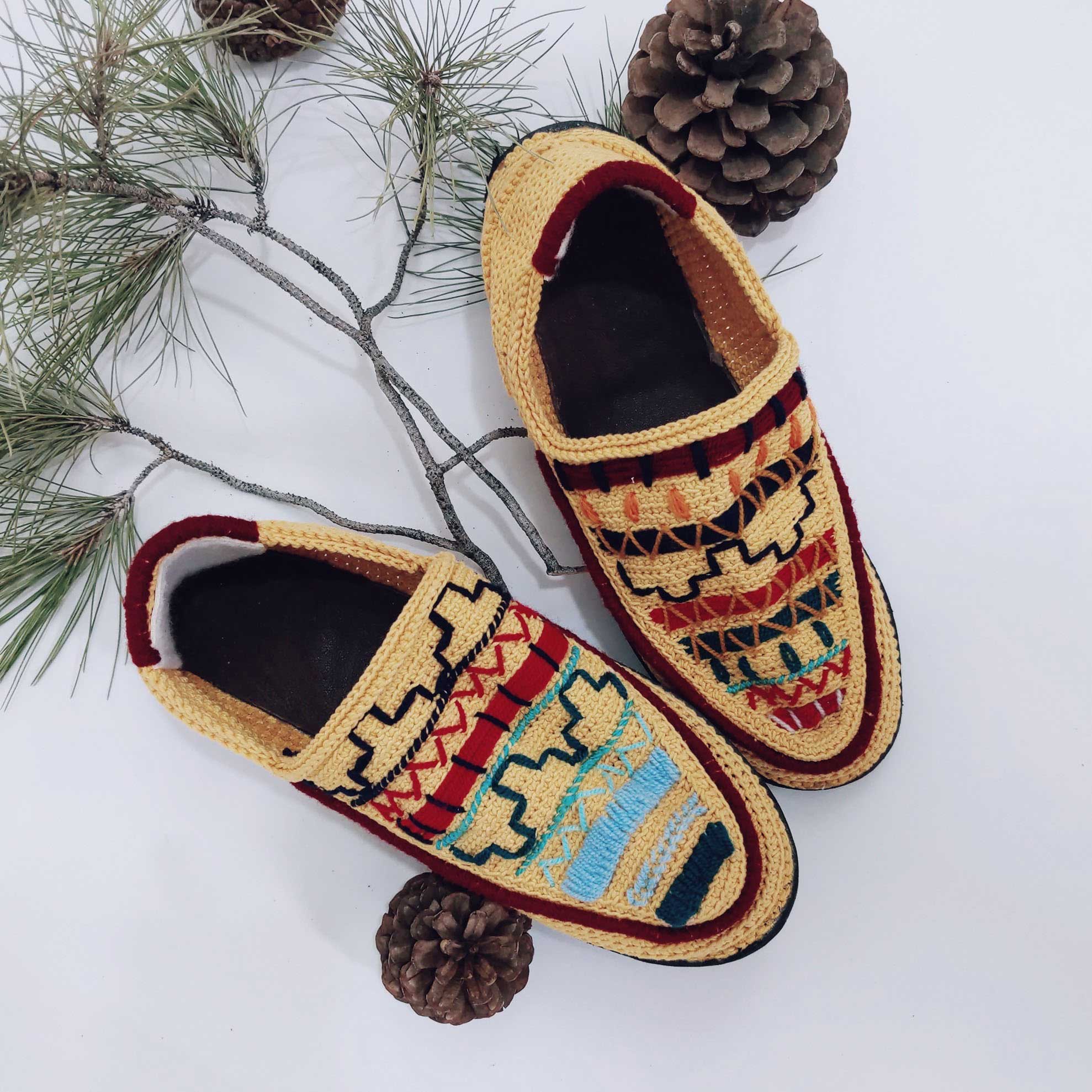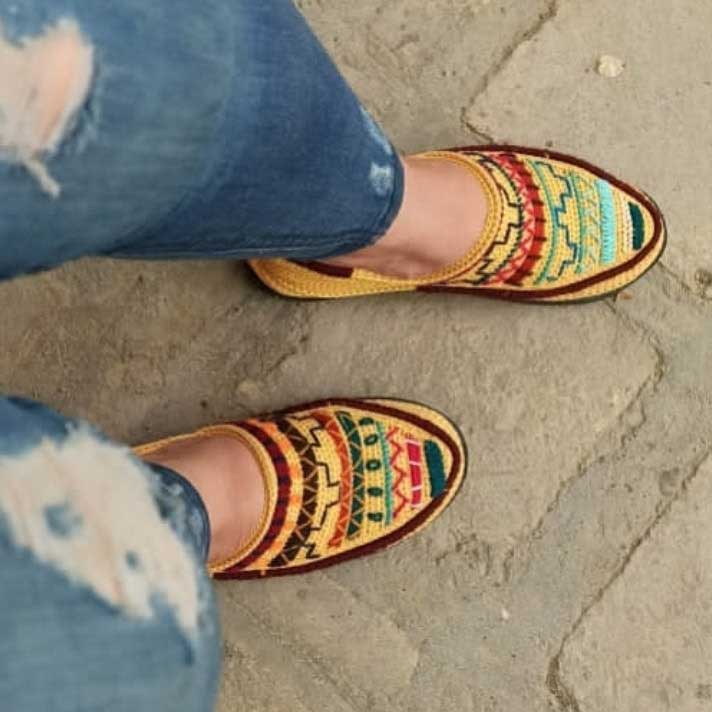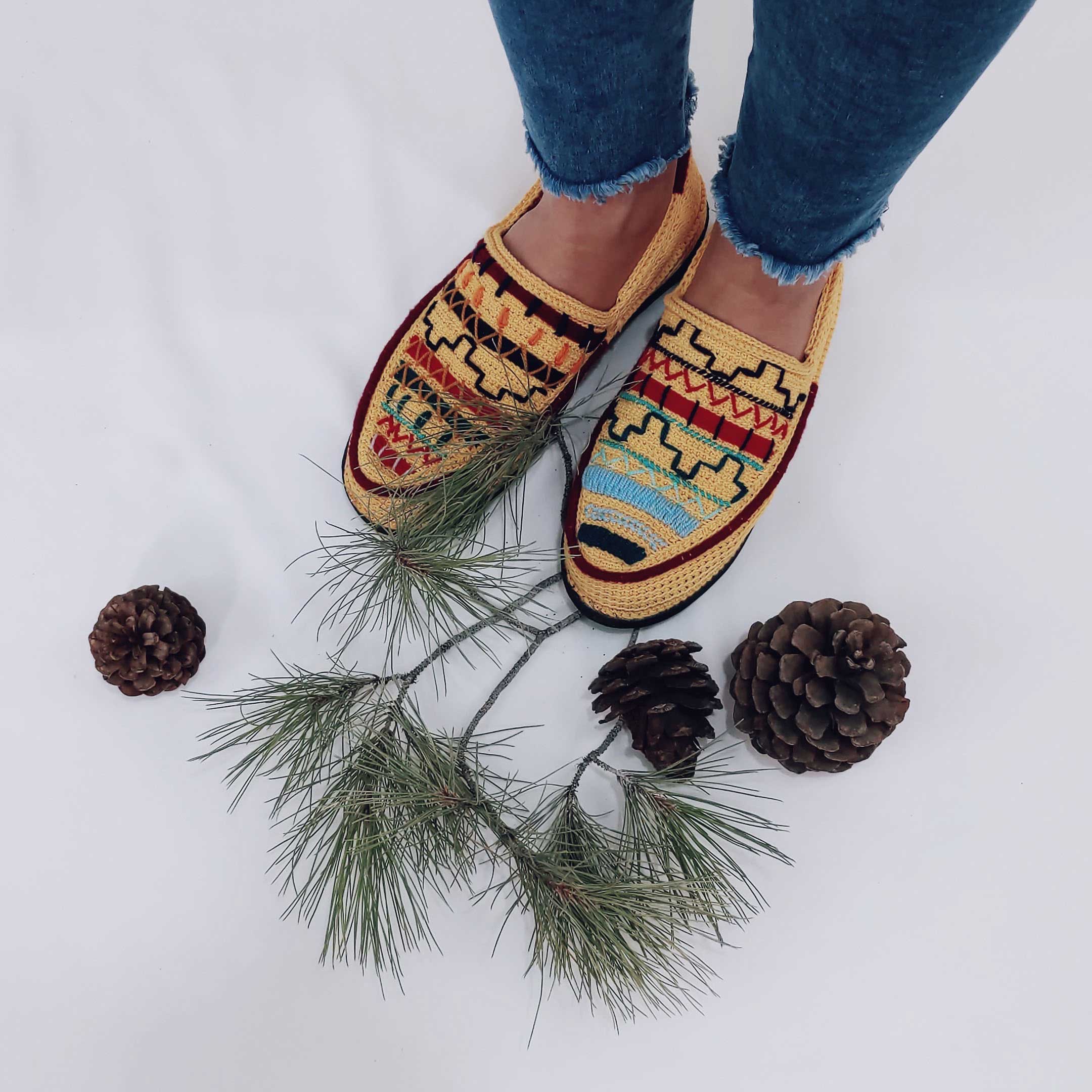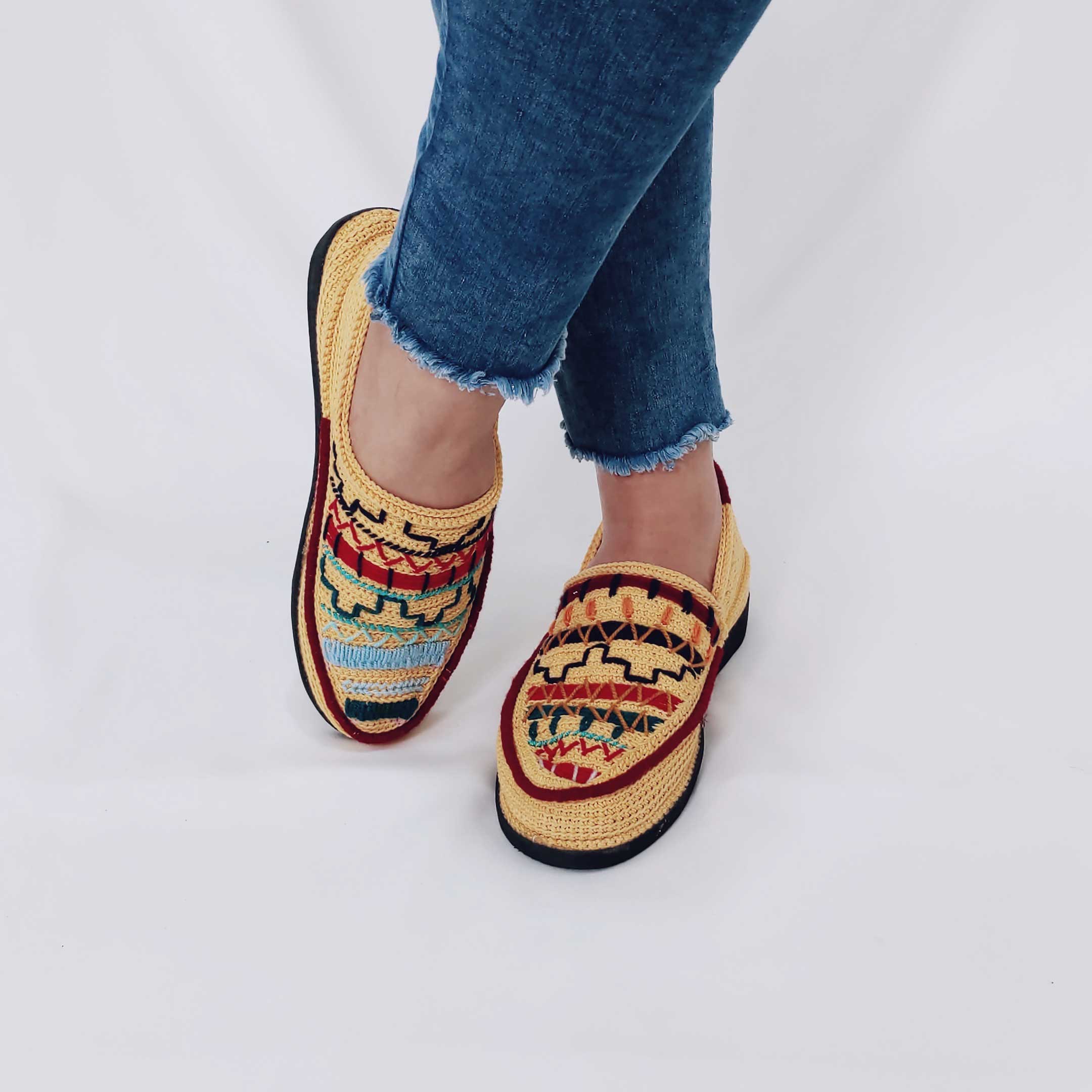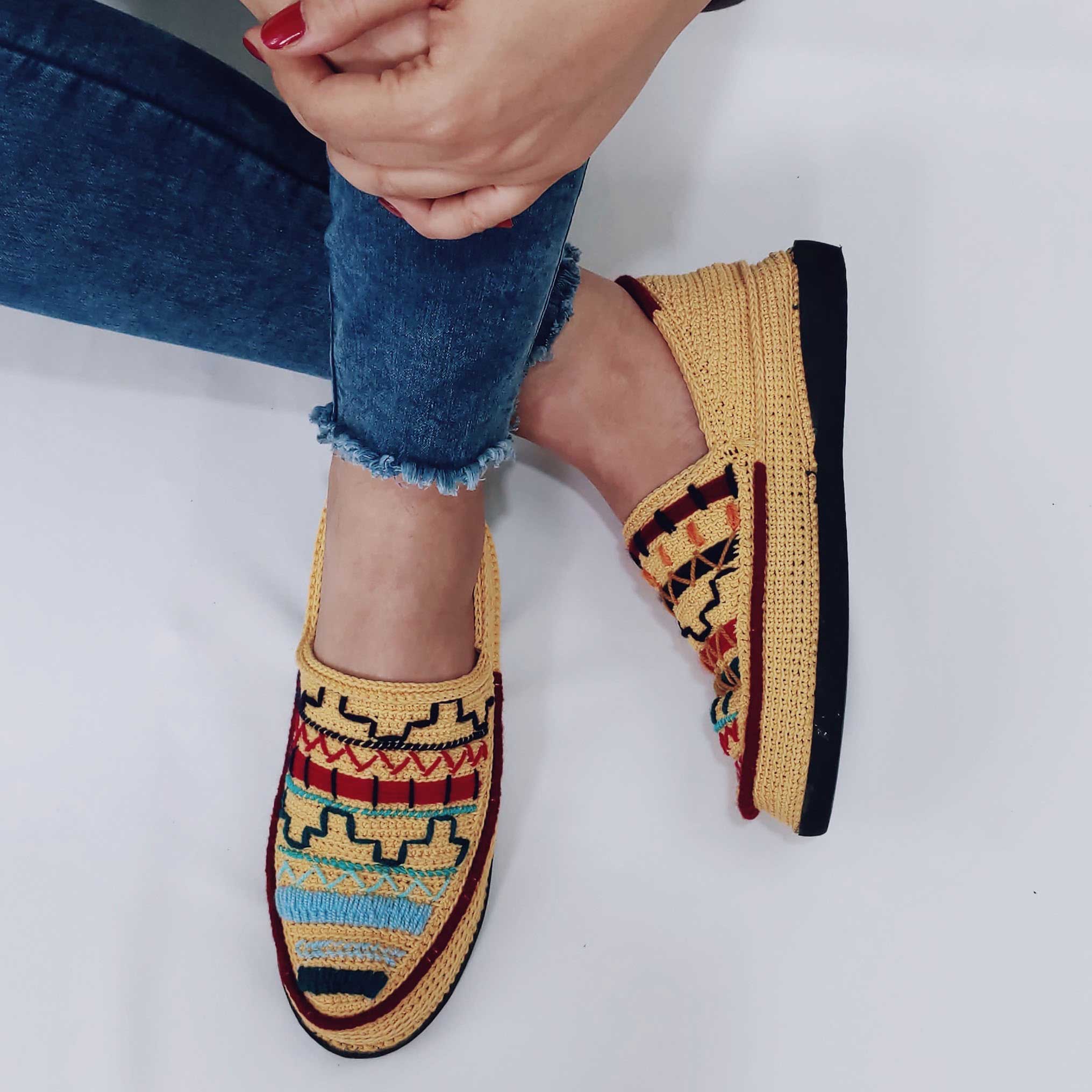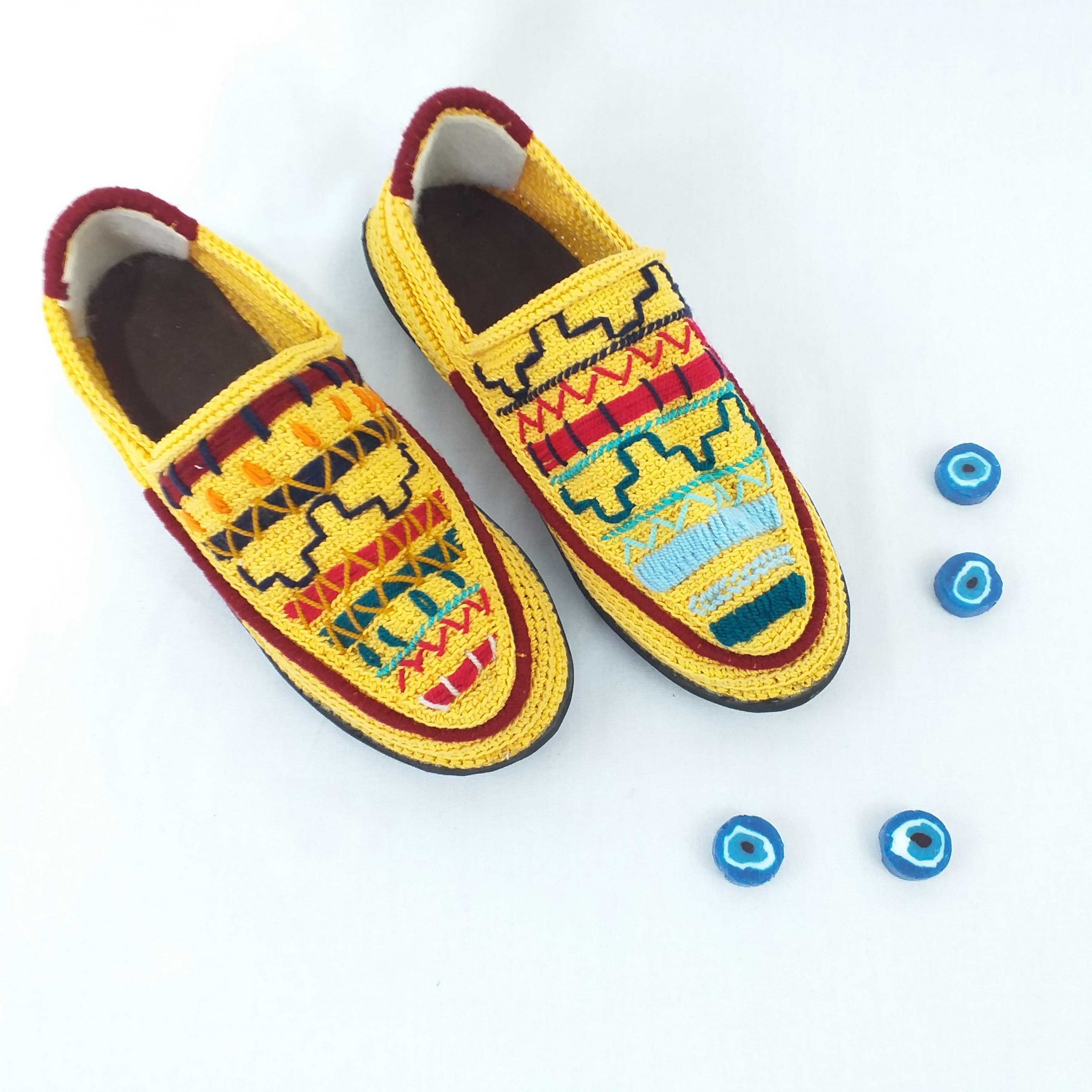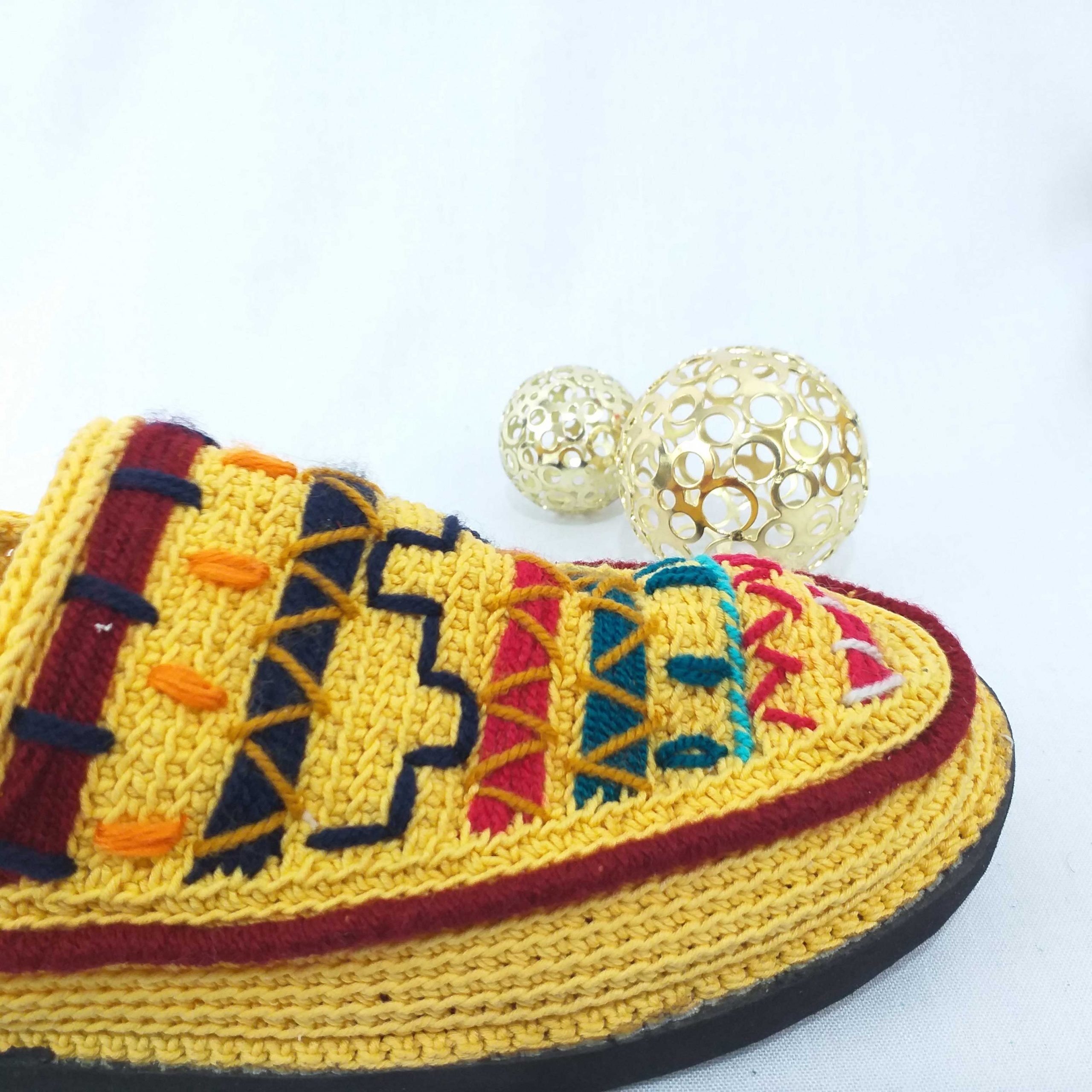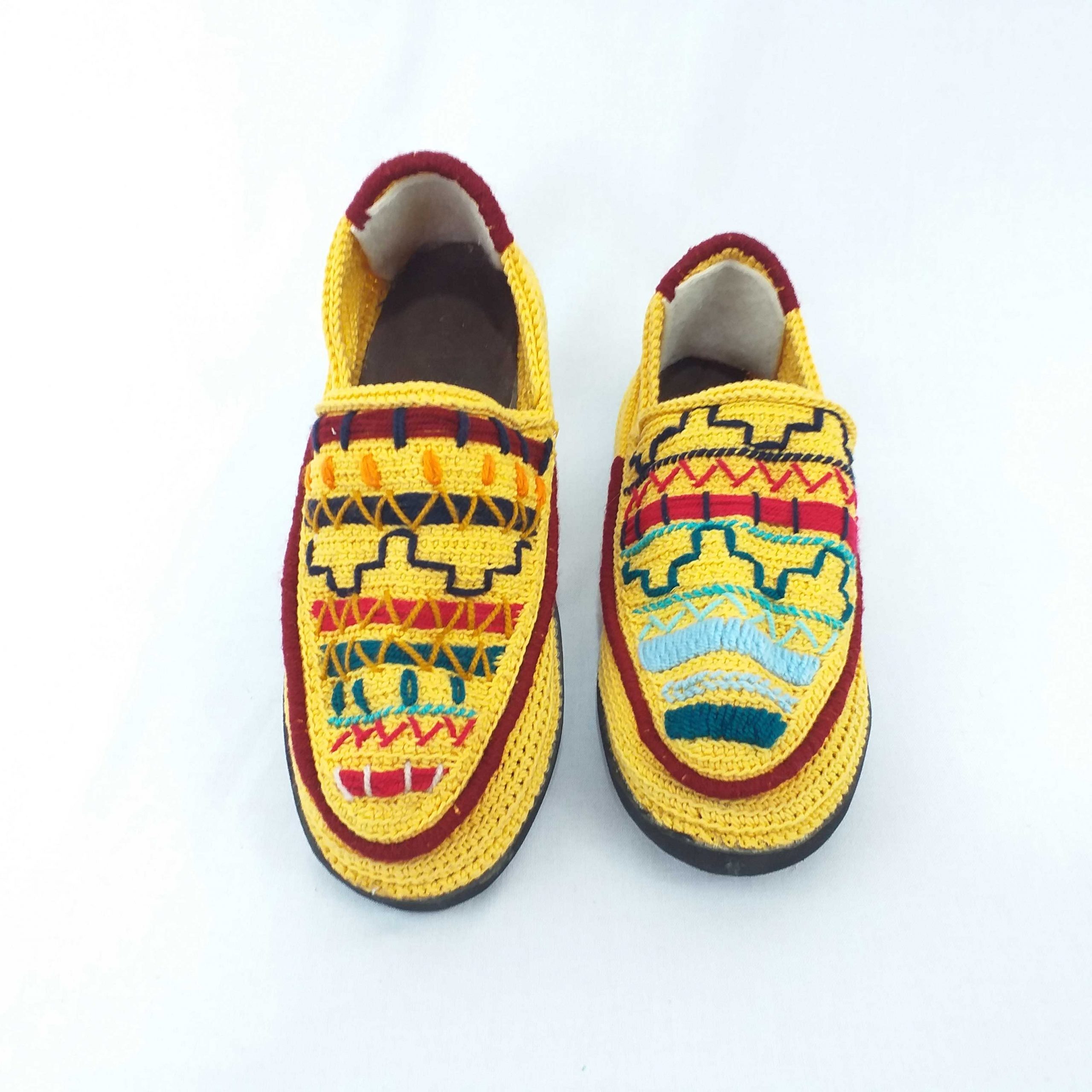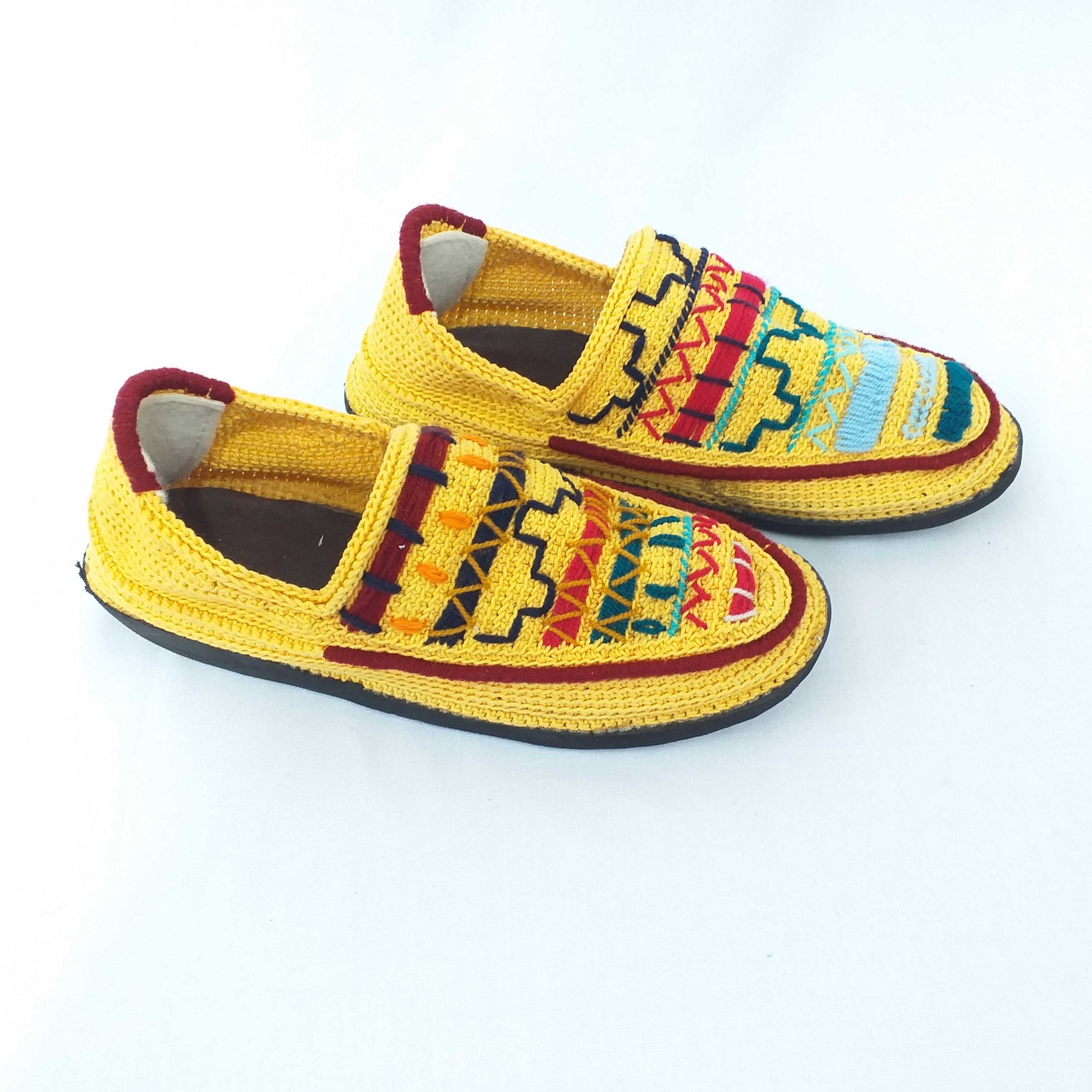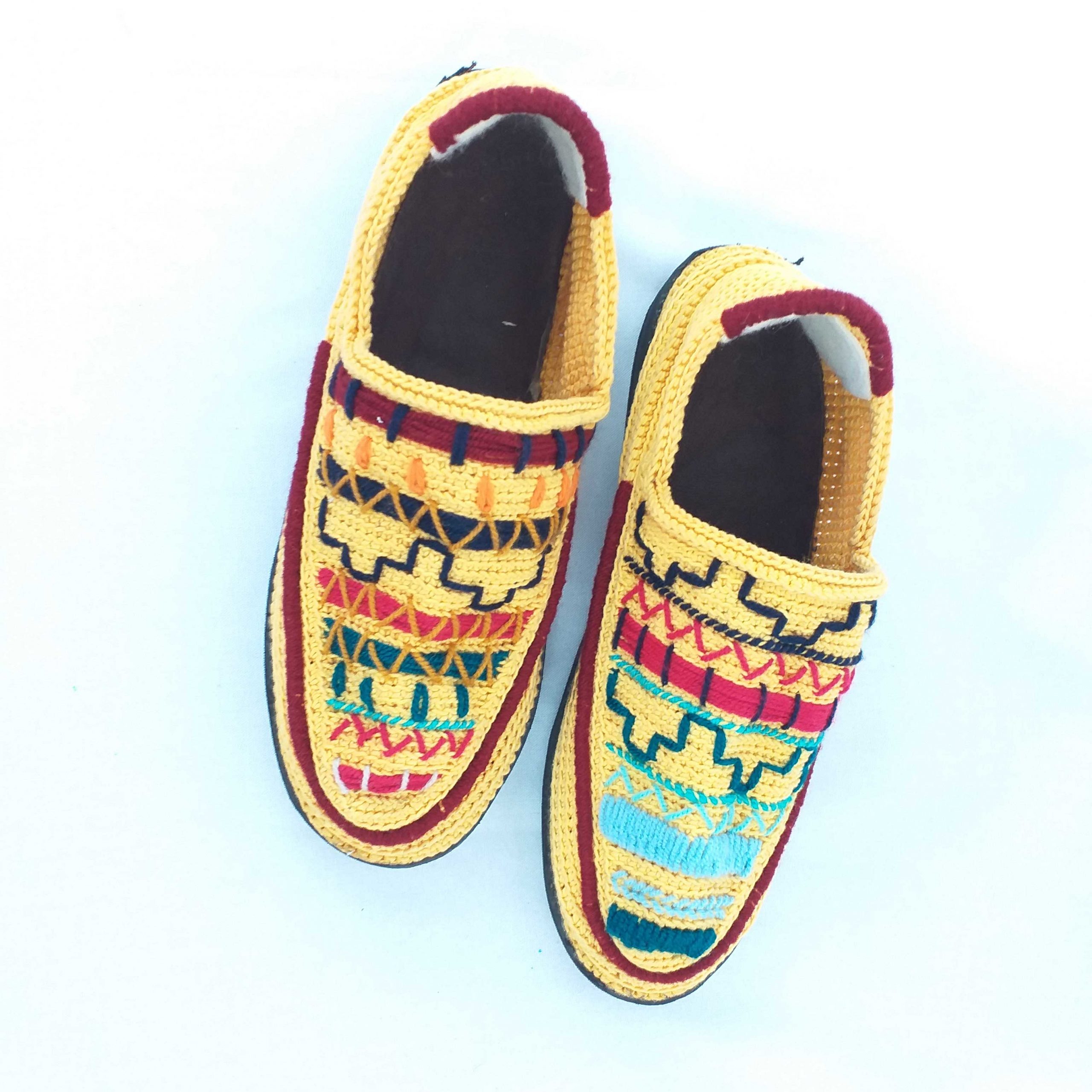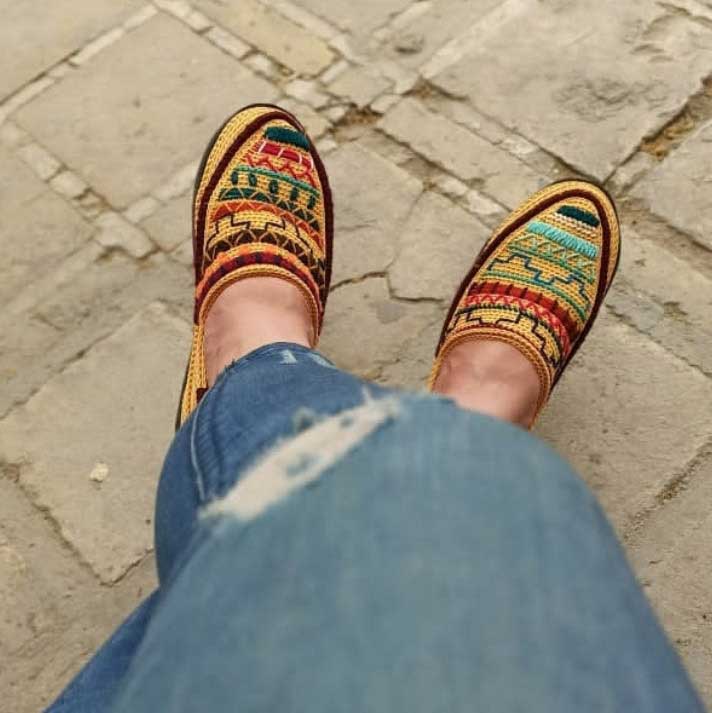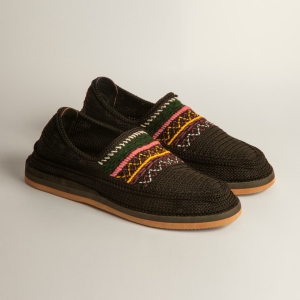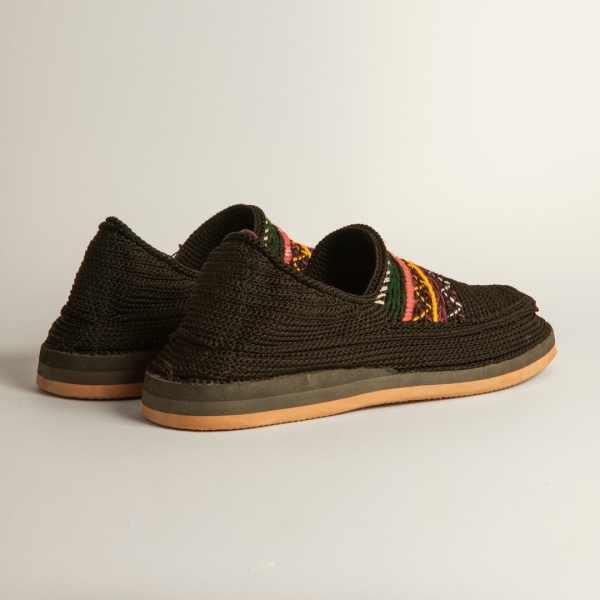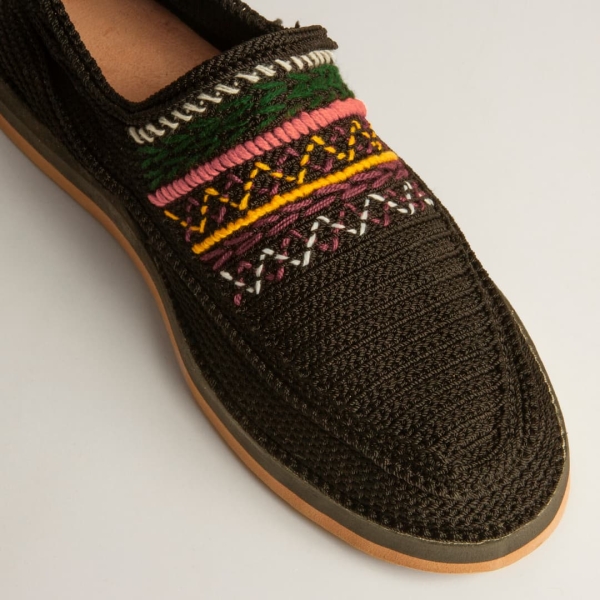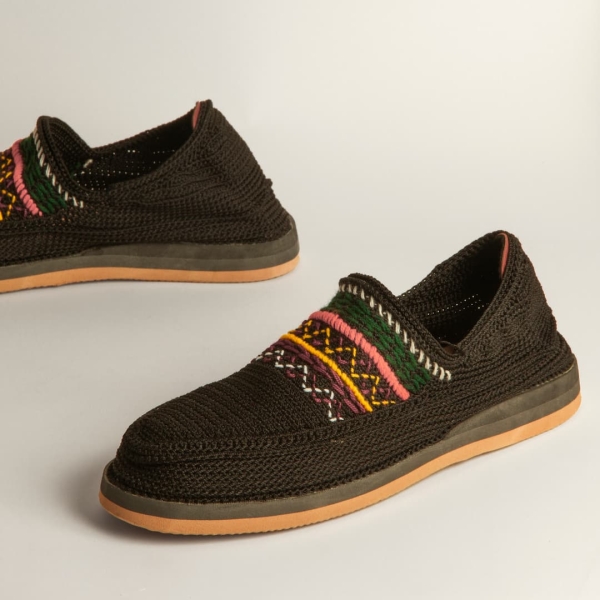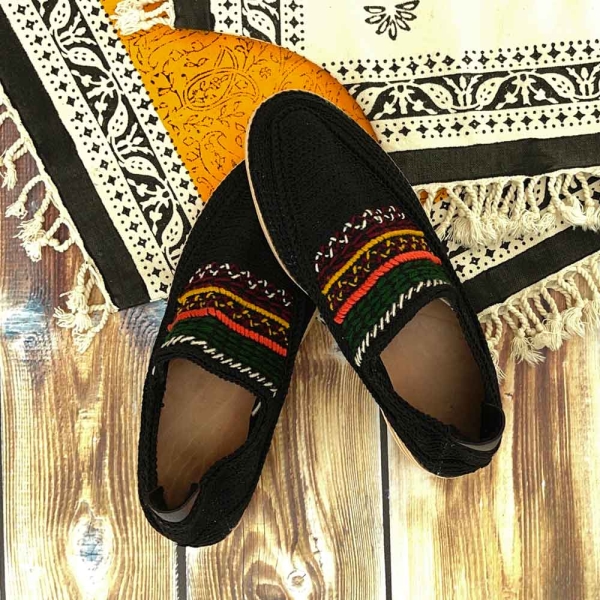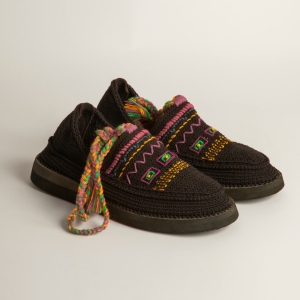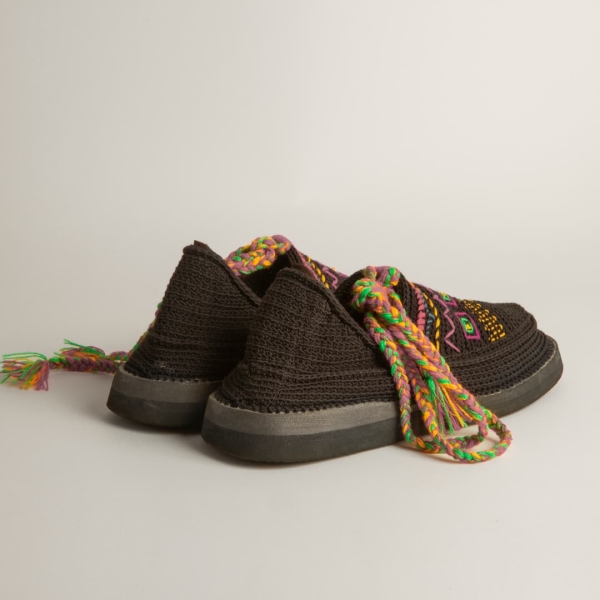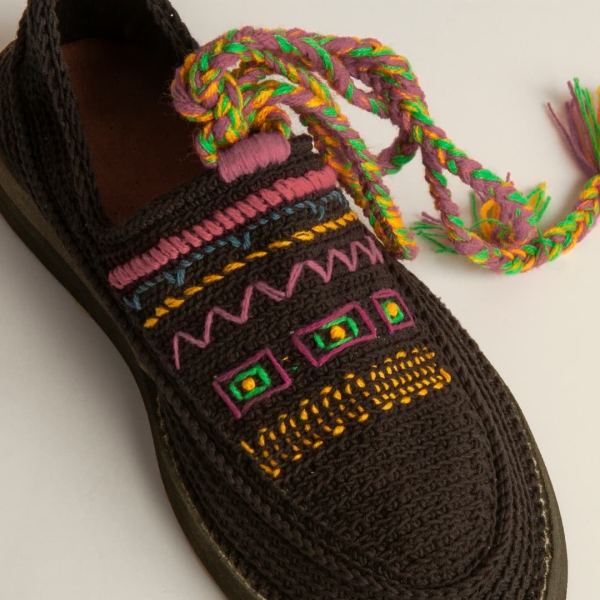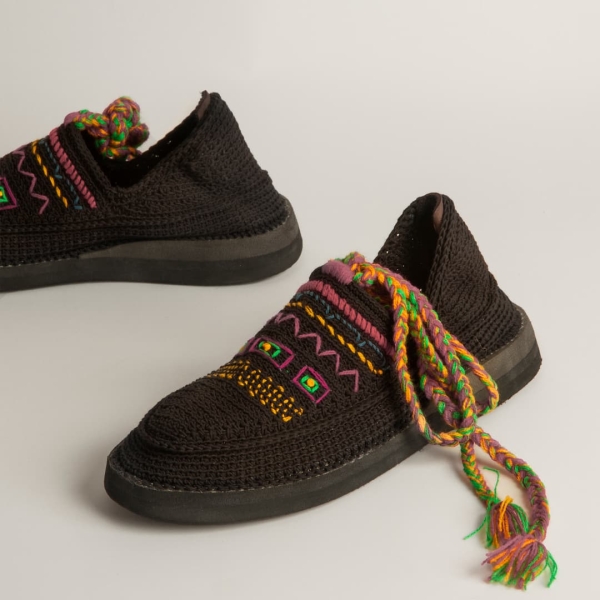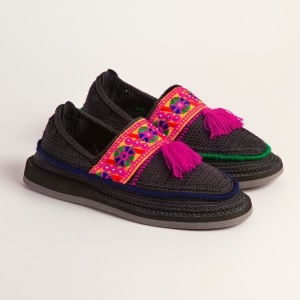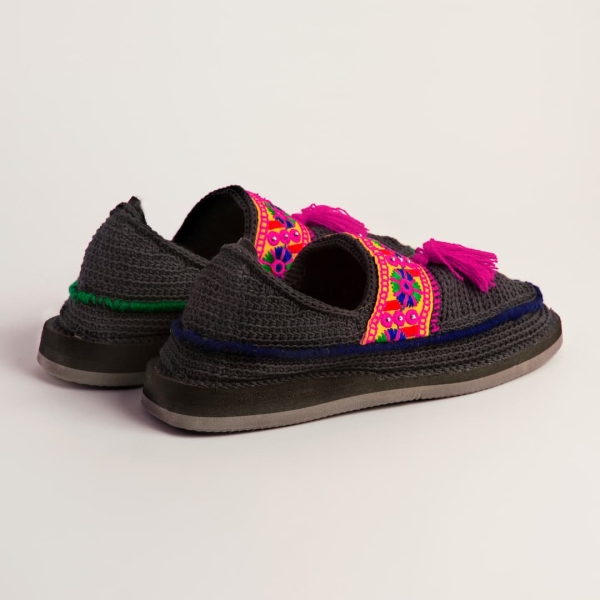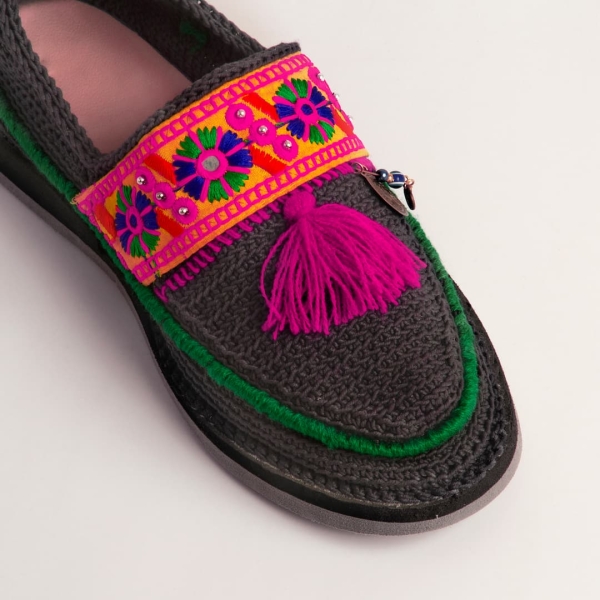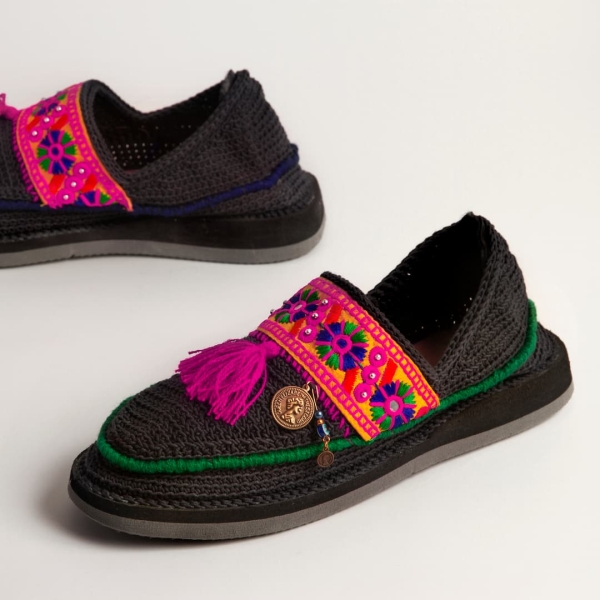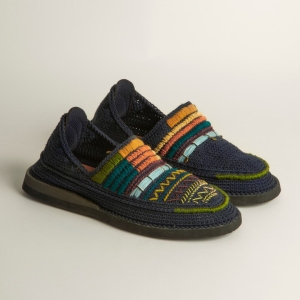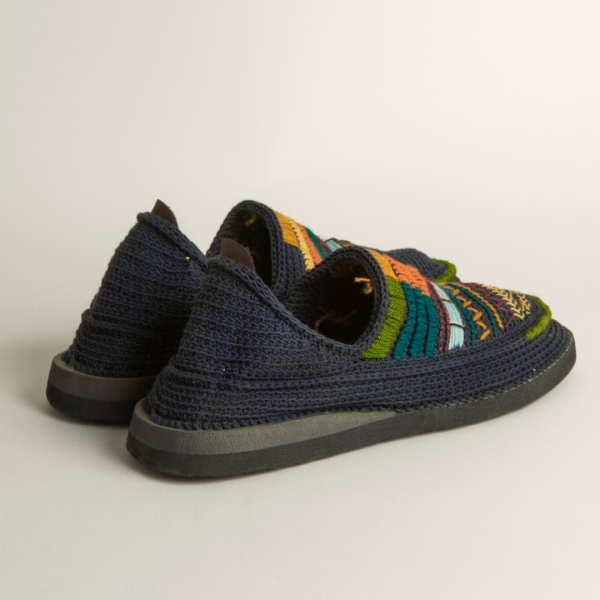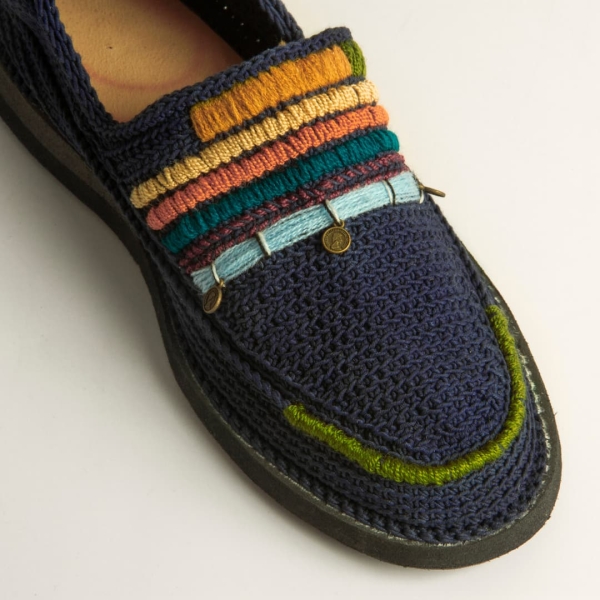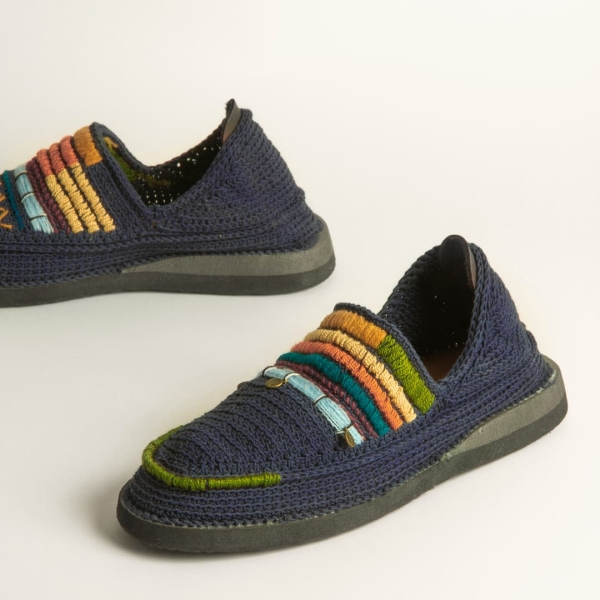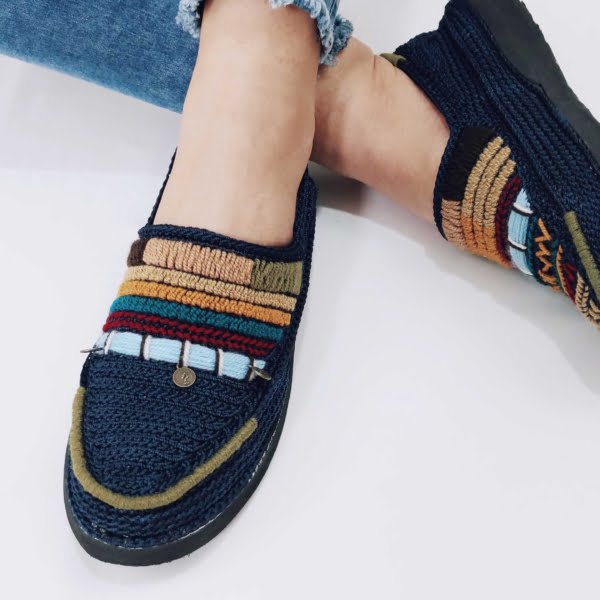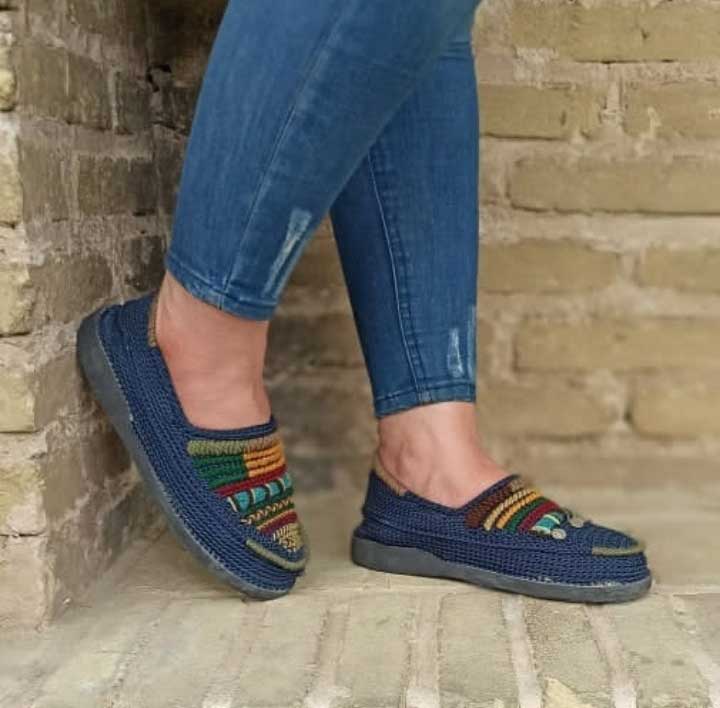Yellow giveh shoes
shoes with silk and cotton yarn inspired by Persian art
Material: silk and cotton yarn
Insole: Ashbalt leather
Cumin: Two layers of reinforced foam
Color: Fixed acrylic
Giveh or Givah (Persian: گیوه)is a kind of soft, comfortable, durable and handmade shoe that is common in several parts of Iran especially in rural and mountainous areas of Kermanshah Province. The production centers of Giveh are the provinces of Yazd and Kermanshah in Iran.
Giveh is made up of two parts: sole and upper. The sole is usually made of rubber or leather and the upper is made of fabric created using an ancient technique known as nalbinding (not weaving) that pre-dates knitting or crochet. Before the arrival of the rubber industry to the area, Giveh-makers would use a kind of wild-bull leather to make giveh and the upper was made of wool or cotton nalbound fabric. Most rich people would wear them. Since the arrival of the rubber industry, lower-class people have used rubber as the sole of their givehs.
Persian Giveh
Giveh is a type of traditional summer footwear, known for its lightness, durability, and suitability for long walks. Deeply rooted in Kurdish culture, this footwear is particularly made for men and is a celebrated craft in various provinces including Lorestan, Chaharmahal and Bakhtiari, Kurdistan, Kermanshah, Ilam, Fars, Hamedan, Qazvin, Zanjan, Ilam-Kermanshah, Kurdistan, and West Azerbaijan. The entire production process of Giveh is manual, typically using carpet yarn, silk threads, and soles made from fabric, leather, or rubber.
Kurds refer to Giveh as ‘Kalash’ while the Lors call it ‘Azhieh.’
Originally, Giveh is not exclusive to any one tribe but is primarily associated with the Lors, Kurds, and Laks. Some Turks also adopt Giveh as footwear. It is particularly renowned as a regional souvenir from Lorestan, Chaharmahal and Bakhtiari, Kohgiluyeh and Boyer-Ahmad, Kurdistan, and Kermanshah.






